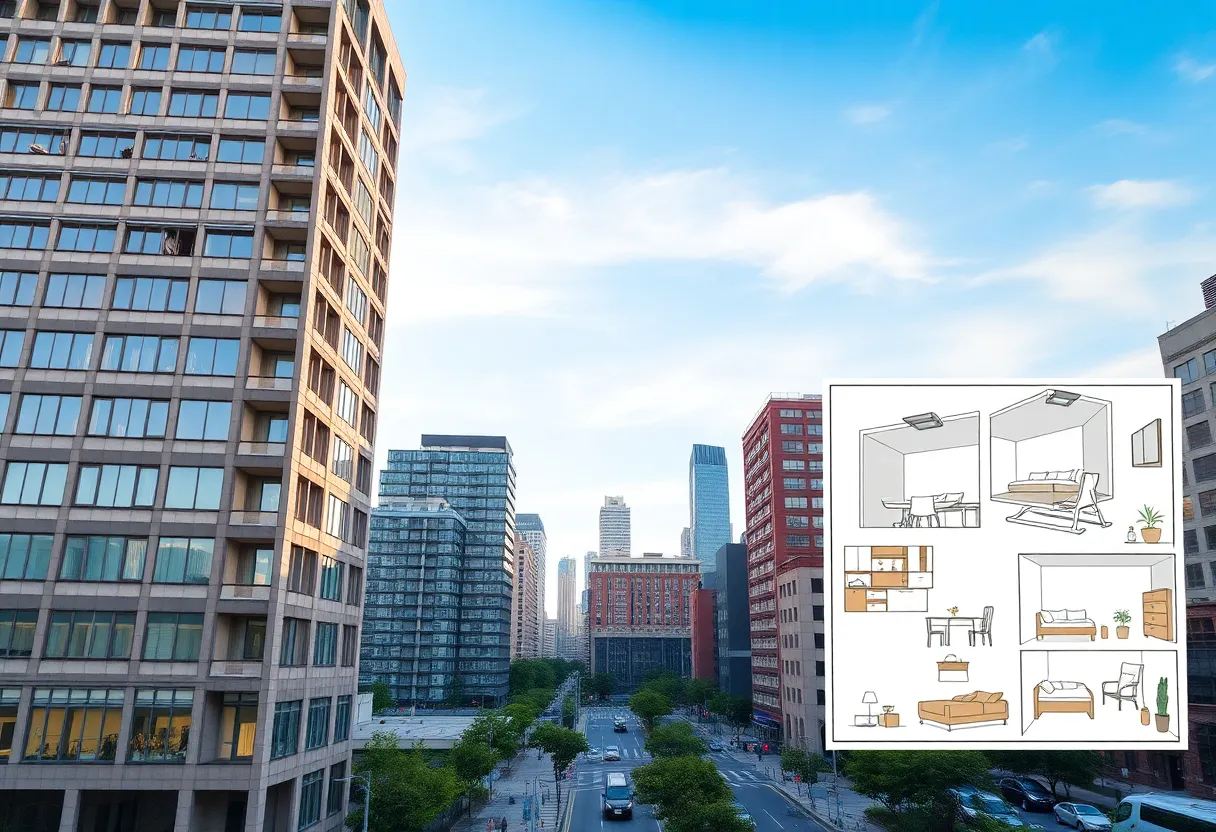News Summary
Phoenix is exploring converting vacant office buildings into residential housing to combat its growing housing shortage. With a significant office vacancy rate and rising rents, the proposal includes creating affordable micro-units targeted at low-income individuals. This innovative approach aims to address both excess office space and a lack of affordable homes, while recent policy changes support adaptive reuse projects, enabling flexible living options for a diverse demographic.
Phoenix is exploring the possibility of converting vacant office buildings into residential housing as a means to alleviate a growing housing shortage. A report from The Pew Charitable Trusts and Gensler suggests that this approach could address both an oversupply of office space and a significant deficit of affordable homes. With a current office vacancy rate of 23%, the city has ample potential for such conversions.
The proposed conversion plan advocates for the creation of dorm-style micro-units, specifically designed for individuals earning below the area median income. These housing solutions are intended to meet the needs of a growing population that is being priced out of the traditional apartment market.
Metro Phoenix has witnessed a staggering 33% rise in median rents over the past seven years, now averaging $1,385 per month as of August 2025. In response, the city’s Housing Solutions Plan for 2025 is incorporating these office-to-residential conversion initiatives to improve housing accessibility.
Policymakers in Phoenix have recently relaxed density regulations and enacted a state law favoring adaptive reuse, which further facilitates the process of transforming office spaces into living units. This regulatory shift is aimed at encouraging innovative housing solutions such as the co-living model, which features smaller private micro-apartments that provide shared amenities, offering a modern take on communal living.
The cost of developing each micro-unit in Phoenix is estimated at about $169,300, which is significantly less than the $300,000 typical cost for conventional studio apartments. With projected rents for these co-living units set at $850 monthly, they are meant to serve residents earning approximately 43% of the area’s median income, thereby creating more affordable options for those most in need.
All utilities, including air conditioning, are factored into the rent for these micro-units. This model is particularly appealing to groups such as students, service workers, and recent graduates who are often unable to afford current housing options in the area.
The Pew/Gensler study posits that converting vacant office spaces presents an efficient alternative to traditional housing methods, with the potential to provide a larger number of units at a quicker pace. The micro-units are designed to be between 158 to 252 square feet, compared to the average size of 440 square feet for standard studio apartments.
Current office spaces in Phoenix are largely composed of high-rise buildings constructed between the 1960s and 1990s, which comprise over 50% of downtown’s office inventory. The study identified 28 suitable office buildings for conversion, offering approximately 9 million square feet of potential housing space.
The recent zoning adjustments allow for greater flexibility in transforming commercial properties into residential spaces, further enhancing the feasibility of these conversions. The state legislature has also introduced requirements emphasizing low- and moderate-income housing in adaptive reuse projects, thus supporting these initiatives.
Development projections indicate that a $25 million subsidy could produce 294 affordable co-living apartments—creating approximately 2.5 times more living units than traditional apartment developments. Amenities in these conversions may include gymnasiums, communal workspaces, and shared recreational areas, facilitating a vibrant community atmosphere.
The co-living concept is gaining momentum in other U.S. cities, reflecting a nationwide trend toward flexible living arrangements that promote community engagement. This model could be utilized by universities, hospitals, and municipalities to supplement housing options within the region.
Feedback from community stakeholders indicates that the co-living initiative has the potential to cultivate lively community living experiences while accommodating a diverse demographic, thus contributing positively to addressing Phoenix’s pressing housing crisis.
Deeper Dive: News & Info About This Topic
HERE Resources
Safeguard Investment Advisory Group Expands to Scottsdale
Additional Resources
- AZ Big Media
- Multi-Housing News
- BBC News
- Wikipedia: Adaptive reuse
- Google Search: Phoenix office to residential conversion

Author: STAFF HERE PHOENIX WRITER
The PHOENIX STAFF WRITER represents the experienced team at HEREPhoenix.com, your go-to source for actionable local news and information in Phoenix, Maricopa County, and beyond. Specializing in "news you can use," we cover essential topics like product reviews for personal and business needs, local business directories, politics, real estate trends, neighborhood insights, and state news affecting the area—with deep expertise drawn from years of dedicated reporting and strong community input, including local press releases and business updates. We deliver top reporting on high-value events such as the Waste Management Phoenix Open, Cactus League Spring Training, and Arizona State Fair. Our coverage extends to key organizations like the Greater Phoenix Chamber of Commerce and Visit Phoenix, plus leading businesses in technology and healthcare that power the local economy such as Intel and Banner Health. As part of the broader HERE network, including HERETucson.com, we provide comprehensive, credible insights into Arizona's dynamic landscape.





